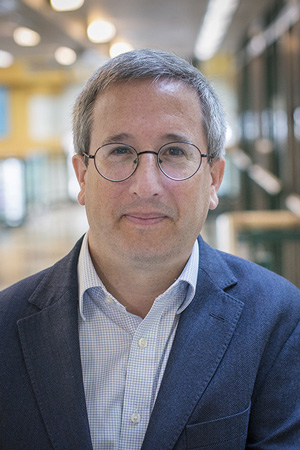OPTIMISE trial seeks to personalize cancer treatment for children with high-risk tumours
Summary:
Precision oncology trial to investigate genomics-guided therapies for children, adolescents and young adults with hard-to-treat cancers.
When standard cancer treatments fail or prove ineffective for patients, options for children and youth are often limited. A clinical trial recently launched at The Hospital for Sick Children (SickKids) aims to address this challenge.

The OPTIMISE trial — short for Optimal Precision Therapies to CustoMISE Care in Childhood and Adolescent Cancer — is designed to match children, adolescents and young adults with high-risk cancers to targeted therapies based on the genetic makeup of their tumours. By using molecular profiling to guide treatment decisions, OPTIMISE seeks to expand potential therapeutic options and improve outcomes for patients with advanced solid tumours, brain tumours, or lymphomas.
The study is part of a new collaboration between clinicians and scientists in Canada and Australia. After first opening in Australia through ZERO Childhood Cancer, SickKids is the first site in Canada to open, with additional Canadian sites planned at BC Children’s Hospital in Vancouver and CHU Sainte-Justine in Montreal.
“By integrating genomic science with an adaptable trial design, OPTIMISE represents an important step forward in the quest to bring more individualized treatments to children facing challenging cancers, and a powerful example of how Precision Child Health could help shape the future of childhood cancer care,” says Dr. Daniel Morgenstern, Canadian Study Chair for the OPTIMISE trial, Staff Physician, Associate Scientist in the Translational Medicine program and Director of the New Agent and Innovative Therapy (NAIT) program.
Leveraging genomics for targeted cancer treatment
Unlike traditional trials that explore a single treatment, OPTIMISE is structured as an adaptive platform trial. This allows multiple treatment arms to run simultaneously, each tailored to specific genetic alterations. This design not only accelerates the pace of discovery but aims to ensure that patients receive targeted therapies most likely to benefit them.
In Canada, each prospective participant will have their tumour molecularly sequenced through a national sequencing program called PROFYLE, a driver project of ACCESS initially launched at SickKids. These results will then help inform which treatment arm might be most relevant for that particular patient, as well as providing additional information to look at predictors of response to different therapies.
The first treatment arm will evaluate a combination of the targeted drug paxalisib with chemotherapy for patients with an alteration in the PI3K/AKT/mTOR pathway, a signaling pathway involved in cell growth and proliferation.
A second treatment arm will open later this year to examine the efficacy of combining two different immune-checkpoint inhibitors for tumours that have an unusually high number of immune cells, and for those with replication repair deficiency that did not respond to initial therapy.
“Immune checkpoint inhibitors have already made a huge difference in treating many adult cancers by helping the immune system find and attack tumour cells. We’re hopeful that by carefully selecting paediatric patients who might benefit most, we can also show how these treatments could play an important role in childhood cancer care,” says Dr. Denise Connolly, former Fellow in the NAIT program and Co-Chair for this treatment arm.
The study is an important part of the team’s goal to leverage existing expertise in tumour genetic sequencing and bring more precision and targeted therapies to children with cancer in Canada in support of Precision Child Health, a movement to individualize care for patients and families at SickKids.
“We hope this study will not only enhance patient outcomes but deepen our understanding of treatment responses and resistance mechanisms to pave the way for the future of individualized cancer care,” says Morgenstern.
The trial is funded in Canada by Cancer Research Society, which provided the initial funding to help launch the trial, along with Stand Up to Cancer, ACCESS and the Canadian Institutes of Health Research (CIHR).

